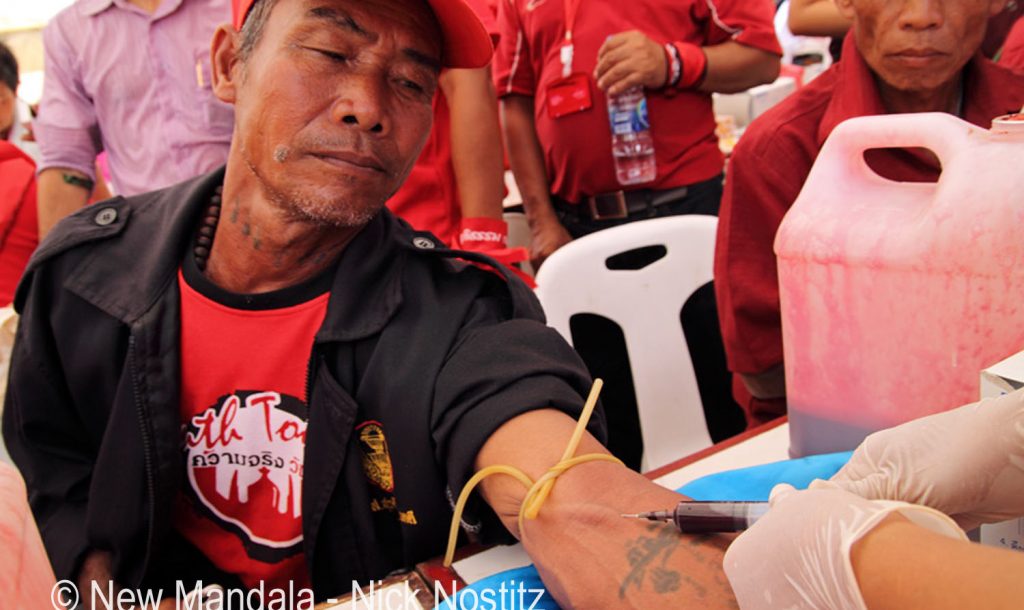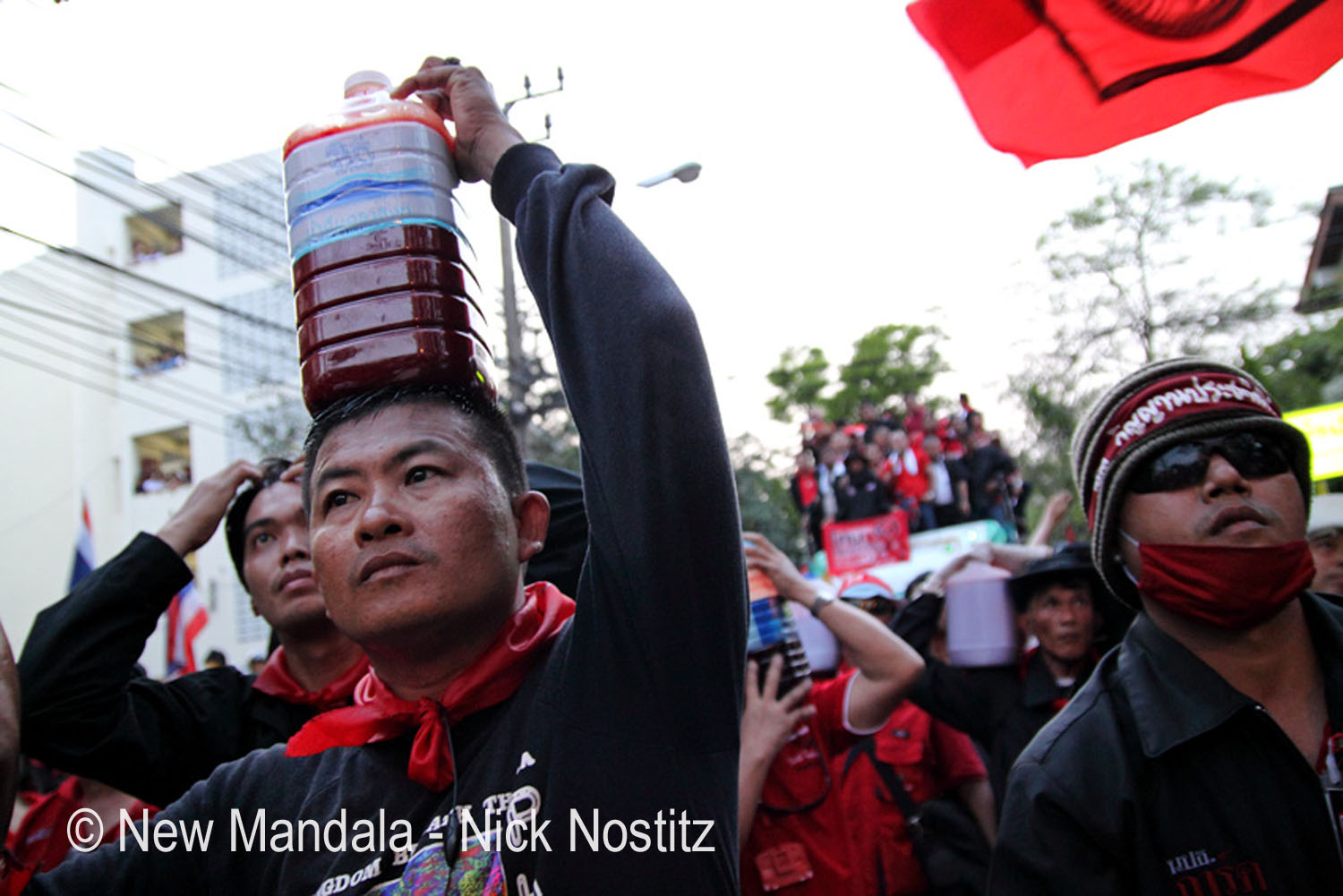Over the years New Mandala has published a very wide array of materials on Thai politics. I just did a count: by now there are 1919 items in total. That number seems somehow auspicious.
As long-time readers know, in the early years most of the attention the website received was based on our daily coverage of Thai political matters. Big debates about the political role of the monarchy and the country’s post-coup upheavals were captured on these pages. During those hectic early years our blend of anecdote, analysis and new perspectives was usually flavoured with the spicy street politics of Thailand’s colour-coded showdowns. The photos used to illustrate this post are from that dramatic period.
For a variety of reasons, Andrew Walker and I no longer keep up our running commentary on hijinks and machinations in the kingdom. We still pay close attention but, for the moment, we haven’t felt the need to maintain the same consistency of output. Happily, this has given New Mandala a chance to expand its coverage of other places, most notably Myanmar and Malaysia.
Our approach is also partly explained by the way that Thai elites have embraced a new equilibrium. As discussed here on New Mandala, the allies of deposed former Prime Minister Thaksin Shinawatra and those who opposed his Thai Rak Thai government have, in recent times, engaged in a compromise game. Security the position of Prime Minister Yingluck Shinawatra is naturally a big part of that story. From where we sit there has been a long period of relatively stable interactions.
Still, Thailand’s political story is not yet settled and today, the 40th anniversary of the dramatic events of 14 October 1973, gives me extra reason to turn some attention to the prospect of future turbulence.
It seems apparent that before too long Thais will be faced with the next crisis, with the chance of further conflict along the kingdom’s prevailing faultlines. Such scenarios will challenge academic analysts who seek to understand what may prove to be momentous shifts in the national orientation.
To provide some general assistance with this task I have curated a list of 14 posts from New Mandala‘s back catalogue. These are the Thailand posts that have received the most comments over the past 7.5 years. There are an average of 175 comments on each of these posts (out of the 44,000 comments New Mandala has published).
Given the participatory orientation of this website, such a list feels like an appropriate way to recognise the democratic impulses of this day, 40 years ago:
- Andrew Walker, The King Never Smiles?
- Nicholas Farrelly, Plane audacity in Thai dispute
- Nick Nostitz, The crushing of the Red Shirts
- Andrew Walker, FACT’s plea for Joe Gordon
- Nicholas Farrelly, Andrew Marshall’s Thai Story
- Cod Satrusayang, Why Thailand needs its king
- Andrew Walker, The Devil’s Discus – in Thai
- Nick Nostitz, Songkran in Cambodia: Red Shirts meet Thaksin
- Andrew Walker, Amnesty International and Robert Amsterdam
- Paul Handley, Review of A Life’s Work
- Nicholas Day, War at Khao San
- Andrew Walker, Tolerating intolerance
- Kwanravee Wangudom, Violating human rights? Yes, indeed!
- Lee Jones, Report on “Lèse Majesté in Thailand: The Enemy of Democracy”
I hope you find the original posts and the long threads of comments intriguing. There is a great deal of the history of ideas relevant to the study of contemporary Thailand that I can see here. As always, please feel free to add your own contribution to the ongoing discussions of Thai politics and society.
 Facebook
Facebook  Twitter
Twitter  Soundcloud
Soundcloud  Youtube
Youtube  Rss
Rss 
